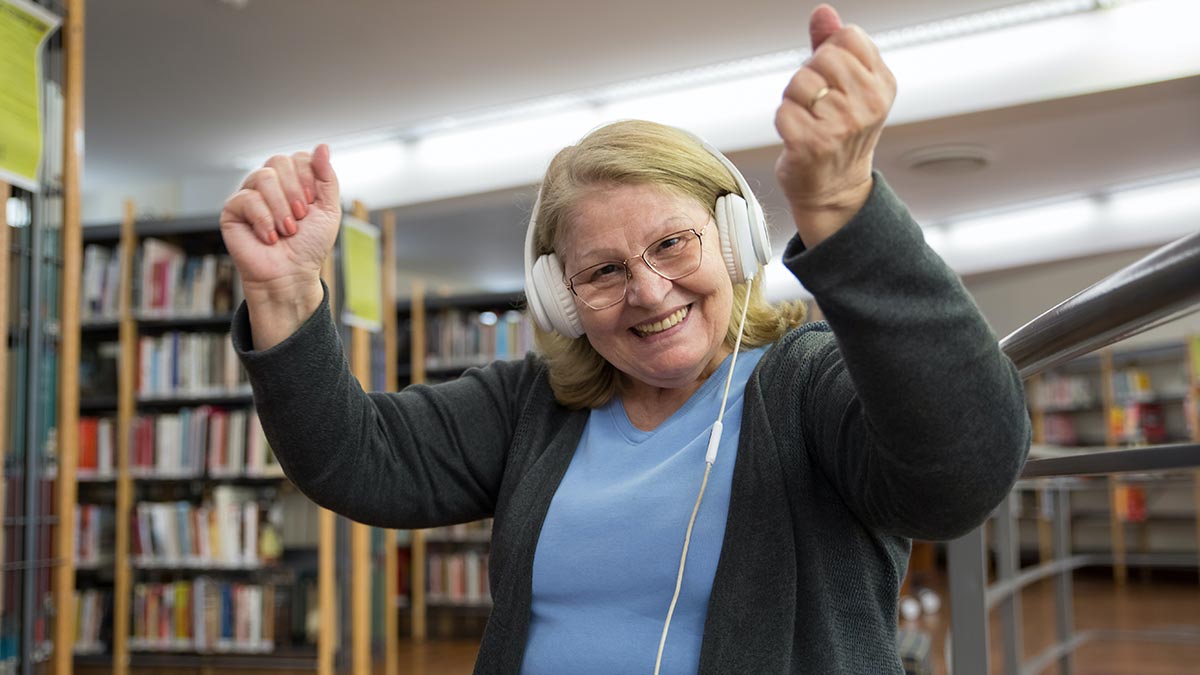
How Music Therapy is Beneficial for Seniors with Dementia
Music has always been a powerful tool for expressing feelings and reliving memories. It’s no wonder then that music therapy can have a profound impact on the mental, emotional, and physical health of an elderly person with dementia.
Dementia has no cure, however, according to several studies, treatment options like music therapy can help slow down progression of the disease and its symptoms.
What is Music Therapy?
According to PositivePsychology.com, music therapy is the process by which a trained therapist uses music and the thoughts, feelings, and experiences associated with it to help promote a patient’s health. It’s not simply playing music, but much more complex.
There are two types of music therapy: active and receptive.
Active: The patient is actively involved in this type of therapy. Examples are playing a simple instrument, singing, and dancing. Active therapy is very physically stimulating for seniors.
Receptive: In receptive music therapy, the patient is listening to music in a mindful way. The song choices may reflect their culture, generation, or past experiences.
Music Therapy for Memory Conditions
This study suggests that there are a few reasons why music therapy can improve Alzheimer's disease symptoms, which is a specific disease that falls under the umbrella term of dementia:
- Music triggers emotions, which helps create new neurons for patients. This can lead to a boost in their memory and mood.
- Music releases dopamine in the senior’s brain, which may lessen motor function decline.
- Music reduces stress, which reduces the rate of neurodegeneration in the brains of dementia and Alzheimer’s patients.
Another study, conducted by Northwestern University, says that music memories may remain longer than other memories because the area of the brain involved in music memory isn't as affected early on. As a result, the patient may be able to feel more connected to themselves while listening or singing to favorite songs.
Music therapy interventions that can help dementia patients include:
- Individual music sessions
- Dancing and exercising to music
- Singing along with songs
- Learning simple musical instruments
- Writing song lyrics
You can engage your family member with dementia in music-related activities at home. Allow the person to choose the songs if they’re able, encourage movement, and make sure to avoid sensory overload by keeping the music at a low volume and eliminating competing noises.
Finding a licensed music therapist can also be beneficial for your loved one with a memory-related condition. To get started with professional music therapy, take a look at this list of music therapists in the Wexford area compiled by Psychology Today.
Visiting Angels North Pittsburgh Can Help with Music Therapy
At Visiting Angels in Wexford, our kind and friendly caregivers can help your loved one find opportunities to appreciate music at home as part of their routine. Our team members enjoy playing nostalgic songs for patients and engaging them to move. Music is a way for seniors with memory impairment to communicate with their caregivers and vice versa. Our team members are able to follow the recommendations of your senior relative’s music therapist as well.
If you’re interested in learning more about how Visiting Angels caregivers can assist your loved one in the North Pittsburgh area with our trusted non-medical, in-home services, reach out to us today via our contact form or give us a call at 412-366-4860.
